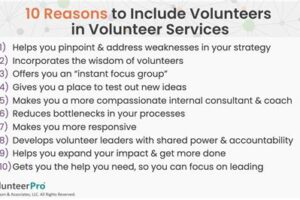Table of Contents
A mental health volunteer job description typically involves assisting individuals with their mental health needs, providing emotional support, and promoting self-care practices. Volunteers may also assist in organizing and facilitating group therapy sessions or workshops. This role requires empathy, good communication skills, and a strong commitment to helping others improve their mental well-being.
Mental health volunteer positions offer a unique and fulfilling opportunity to make a positive impact on the lives of individuals struggling with their mental well-being. With the growing awareness and importance of mental health, the need for dedicated volunteers in this field has never been greater. Whether you are a mental health professional looking to give back to the community or someone passionate about mental wellness, this volunteer job description will provide you with valuable insights into the responsibilities and expectations of such a role. So, if you have a compassionate heart and a desire to make a difference, read on to discover how you can contribute to the mental well-being of others.
The Importance of Mental Health Volunteers
Mental health is a critical aspect of overall well-being, yet it often goes overlooked or misunderstood. Mental illnesses can affect anyone, regardless of age, gender, or background. Unfortunately, many individuals facing mental health challenges do not receive the support they need due to various barriers, including limited access to resources and stigma. This is where mental health volunteers play a vital role in bridging the gap. Their dedication and empathy contribute to creating a more inclusive and supportive society for those struggling with mental health issues.
What Does a Mental Health Volunteer Do?
Mental health volunteers are compassionate individuals who offer their time and skills to support those dealing with mental health challenges. They work alongside professionals in the field, such as therapists, counselors, and social workers, to provide assistance and create a safe space for individuals seeking help. While specific duties may vary depending on the organization or program, here are some common responsibilities of mental health volunteers:
1. Providing Emotional Support
One of the primary roles of a mental health volunteer is to offer emotional support to individuals facing mental health issues. This involves actively listening to their concerns, showing empathy, and providing a non-judgmental environment where they can express themselves freely. Volunteers often act as a friendly ear, offering comfort and reassurance to those who may feel isolated or misunderstood.
2. Assisting with Outreach Programs
Many mental health organizations conduct outreach programs to raise awareness and educate the community about mental health. Volunteers assist in organizing and facilitating these events, helping to disseminate valuable information and reduce stigma surrounding mental illnesses. They may participate in public speaking engagements, lead workshops, or distribute educational materials to promote mental health literacy.
3. Conducting Support Group Sessions
Support groups play a crucial role in providing individuals with a sense of belonging and understanding. Mental health volunteers often help facilitate these support group sessions, creating a safe space for participants to share their experiences, learn coping strategies, and build a supportive network. Volunteers use their active listening skills to encourage open discussions and ensure that everyone feels heard and respected.
4. Assisting in Crisis Intervention
In times of crisis, mental health volunteers may be involved in providing immediate assistance and support. They collaborate with professionals to help individuals navigate through challenging situations, offering guidance and resources to help stabilize their mental well-being. Volunteers may also assist in connecting individuals with appropriate professional help, such as hotlines or crisis centers, ensuring they receive the necessary support.
5. Promoting Self-Care and Wellness
A key aspect of mental health volunteering involves promoting self-care and overall wellness. Volunteers educate individuals about healthy coping mechanisms, stress reduction techniques, and the importance of maintaining a balanced lifestyle. They may organize workshops or activities focused on mindfulness, art therapy, exercise, or any other practices that contribute to mental well-being.
Qualifications and Skills Required
To excel as a mental health volunteer, certain qualifications and skills are beneficial:
1. Empathy and Compassion
Volunteers must possess a genuine empathy towards individuals struggling with mental health challenges. They should demonstrate compassion and understanding, while respecting the personal boundaries and privacy of those they support.
2. Active Listening and Communication Skills
Strong communication skills, particularly active listening, are essential for mental health volunteers. They need to effectively listen and understand the concerns of individuals they assist, while also being able to convey information and provide support in a clear and concise manner.
3. Knowledge of Mental Health Issues
While not necessarily a requirement, having a basic understanding of mental health issues is advantageous for mental health volunteers. This knowledge enables them to better comprehend the challenges faced by individuals seeking support and enhances their ability to provide appropriate assistance.
4. Non-Judgmental Attitude
A non-judgmental attitude is crucial when working with individuals experiencing mental health difficulties. Volunteers must be accepting and free from biases, promoting an environment where individuals feel safe to share their thoughts and feelings without fear of judgment.
5. Patience and Resilience
Mental health volunteering can be emotionally challenging at times, requiring patience and resilience. Volunteers need to remain calm and composed, even when presented with difficult situations or strong emotions. They should be able to adapt to different circumstances and provide support without becoming overwhelmed themselves.
Conclusion
Mental health volunteers play a vital role in supporting individuals facing mental health challenges. Their dedication and contributions help create a more compassionate and inclusive society. Whether it’s providing emotional support, assisting in crisis intervention, or promoting self-care, mental health volunteers make a significant difference in the lives of those in need. By fostering greater awareness, reducing stigma, and offering a helping hand, these volunteers contribute to the overall well-being of individuals and communities.
Introduction to Mental Health Volunteer Job Description:
As a mental health volunteer, you will provide valuable support and assistance to individuals facing mental health challenges. In this role, you will work under the guidance and supervision of mental health professionals to promote positive mental well-being in the community.
Responsibilities:
Your key responsibilities as a mental health volunteer include actively listening to individuals, offering emotional support, and promoting a non-judgmental and inclusive environment. Additionally, you may be involved in conducting research, organizing workshops, and advocating for mental health awareness.
Qualifications:
To be considered for this position, it is essential to possess strong interpersonal skills, empathy, and the ability to maintain confidentiality. Knowledge of various mental health conditions, crisis intervention techniques, and community resources is also beneficial. Previous experience or training in mental health is preferred but not mandatory.
Training and Supervision:
As a mental health volunteer, you will receive comprehensive training to equip you with the necessary skills and knowledge. Regular supervision sessions will be provided to ensure your well-being and ongoing development. It is vital to adhere to the ethical guidelines and practices set forth by the organization you volunteer with.
Collaboration and Teamwork:
Working collaboratively with mental health professionals and other volunteers is a crucial aspect of this role. You will actively participate in team meetings, share knowledge and experiences, and contribute to the overall effectiveness of support programs. Effective communication and cooperation are key in providing holistic care.
Confidentiality and Boundaries:
Maintaining strict confidentiality about individuals’ personal information and experiences is of utmost importance in this role. Respecting boundaries and ensuring the privacy of individuals seeking assistance is essential for fostering trust and creating a safe environment.
Flexibility and Time Commitment:
Mental health volunteer work requires flexibility in terms of availability, as individuals facing mental health challenges may require support beyond regular office hours. It is important to be prepared for irregular schedules and commit to the required time slots, ensuring consistency and continuity in care.
Benefits and Personal Development:
Engaging in mental health volunteer work not only benefits the community but also provides personal growth opportunities. By developing your listening skills, empathy, and understanding of mental health, you can make a positive impact in people’s lives while also enhancing your own knowledge and compassion.
As a mental health volunteer, your role is crucial in providing support and assistance to individuals who are facing various mental health challenges. Your dedication and commitment to improving the lives of those affected by mental illness are commendable, and your role as a volunteer should be treated with professionalism and empathy. Below is a comprehensive job description that outlines the responsibilities and expectations of a mental health volunteer:
Responsibilities:
- Provide emotional support and companionship to individuals struggling with mental health issues.
- Assist in monitoring and evaluating the mental health status of clients through active listening and observation.
- Encourage clients to participate in therapeutic activities, such as art therapy, music therapy, or group discussions.
- Collaborate with mental health professionals to develop and implement personalized treatment plans.
- Help clients develop coping skills and strategies to manage their mental health conditions effectively.
- Offer guidance and resources to clients and their families regarding available mental health services and support networks.
- Engage in ongoing professional development to enhance your knowledge of mental health conditions, treatments, and best practices.
- Maintain accurate and confidential records of client interactions and progress.
- Adhere to ethical guidelines and protect client confidentiality at all times.
- Participate in team meetings and training sessions to enhance your skills and contribute to the overall effectiveness of the mental health program.
Qualifications:
- A genuine passion for helping individuals with mental health challenges.
- Strong interpersonal skills and the ability to build rapport and establish trust with clients.
- Excellent active listening and communication skills.
- Empathy, patience, and non-judgmental attitude towards individuals with mental health conditions.
- Basic knowledge of mental health disorders and treatment options.
- Ability to work effectively within a team and collaborate with mental health professionals.
- Reliability and commitment to fulfilling assigned duties and responsibilities.
- Flexibility to adapt to changing client needs and program requirements.
- Understanding of and adherence to ethical guidelines and maintaining confidentiality.
Benefits:
- The opportunity to make a positive impact in the lives of individuals facing mental health challenges.
- Enhancing your knowledge and understanding of mental health disorders and treatments.
- Gaining valuable experience in the field of mental health.
- Developing and refining essential skills such as active listening, empathy, and communication.
- Contributing to the overall well-being of the community.
- Building meaningful relationships with clients and fellow volunteers.
- Personal growth and self-satisfaction from helping others.
Overall, as a mental health volunteer, your dedication and compassion are vital in supporting individuals on their journey towards mental wellness. Your commitment to professional conduct, empathy, and continuous learning will undoubtedly contribute to the success of the mental health program and make a lasting impact on the lives of those you serve.
Thank you for taking the time to explore our blog post on the Mental Health Volunteer Job Description. We hope that this article has provided you with valuable insights into the various responsibilities and opportunities that come with volunteering in the mental health field.
Volunteering in the mental health sector is a noble and rewarding endeavor. By choosing to dedicate your time and skills to help those in need, you are making a significant impact on individuals, families, and communities. As a mental health volunteer, you will have the opportunity to provide support, guidance, and a listening ear to individuals facing mental health challenges.
One of the primary responsibilities of a mental health volunteer is to assist in creating a safe and supportive environment for individuals dealing with mental health issues. This can involve participating in group therapy sessions, facilitating support groups, or simply being present to offer comfort and encouragement. Your role as a volunteer may also include assisting with administrative tasks, such as organizing schedules, updating client records, or coordinating events and workshops.
Furthermore, as a mental health volunteer, you will have the chance to promote awareness and education about mental health within your community. This may involve conducting presentations or workshops, writing articles or blog posts, or utilizing social media platforms to share valuable resources and information. By contributing to the dissemination of accurate and helpful knowledge, you are actively working towards reducing the stigma surrounding mental health and fostering a more inclusive society.
In conclusion, volunteering in the mental health field is an invaluable opportunity to make a positive impact on the lives of others. By providing support, creating safe spaces, and promoting awareness, you become an essential part of the journey towards mental well-being for individuals and communities. We encourage you to explore the various volunteer positions available and find one that aligns with your interests and skills. Your contribution as a mental health volunteer will not only benefit others but also enrich your own life in countless ways.
Thank you once again for visiting our blog, and we hope to see you again soon!
.People also ask about Mental Health Volunteer Job Description:1. What are the responsibilities of a mental health volunteer?- A mental health volunteer is responsible for providing support and assistance to individuals with mental health issues. This may include listening to their concerns, offering guidance, and helping them develop coping strategies. Volunteers may also assist in organizing and facilitating support groups or educational workshops related to mental health.2. What qualifications are required to become a mental health volunteer?- While specific qualifications may vary depending on the organization or program, some common requirements for mental health volunteers include good communication skills, empathy, patience, and a non-judgmental attitude. It is also beneficial to have basic knowledge of mental health conditions and treatment options. Some organizations may require volunteers to undergo training or background checks.3. How much time do mental health volunteers need to dedicate?- The amount of time required can vary based on the individual’s availability and the organization’s needs. Mental health volunteers may choose to commit a few hours a week or participate in more intensive programs that require a larger time commitment. It is important to discuss the expected time commitment with the organization before volunteering to ensure it aligns with your availability.4. What are the benefits of volunteering in mental health?- Volunteering in mental health can be a rewarding experience both personally and professionally. It provides an opportunity to make a positive impact in someone’s life, contribute to the community, and gain valuable skills and knowledge in the field of mental health. Additionally, volunteering can help build empathy, reduce stigma surrounding mental health, and enhance one’s own well-being.5. Are there any risks associated with volunteering in mental health?- While volunteering in mental health can be fulfilling, it is important to be aware of potential risks. Working with individuals experiencing mental health challenges can be emotionally demanding, and volunteers may encounter situations that can be distressing or triggering. It is crucial to have proper support systems in place, such as access to supervision, debriefing sessions, and self-care strategies to ensure volunteers’ well-being.Overall, volunteering in mental health plays a vital role in supporting individuals who are facing mental health challenges. It requires compassion, dedication, and a commitment to ongoing learning and personal growth.






